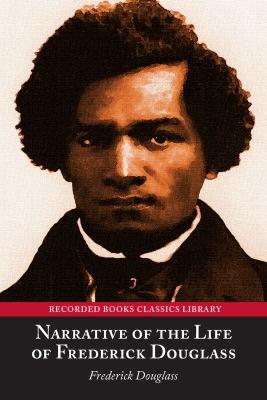
Narrative of the life of Frederick Douglass
Presents the autobiography of Douglass, an American slave, and his journey out of mental and physical bondage.
Other Formats
Browse Related Items
| Genre |
| Downloadable audio books. Sound recordings. Autobiographies. Biographies. |
- ISBN: 9781449878313
-
Physical Description
access
remote
1 audio file (4 hr., 30 min.) : digital - Edition Unabridged.
- Publisher Prince Frederick, Md. : Recorded Books ; [Prince Frederick, Md.] : [Distributed by] OneClick Digital, 2011.
- Copyright ℗1991
Content descriptions
| General Note: | Downloadable audio file. Title from title screen (viewed April 27, 2011). GMD: electronic resource. |
| Restrictions on Access Note: | Access restricted to subscribing institutions. |
| Participant or Performer Note: | Narrated by Charles Turner. |
| System Details Note: | Mode of access: World Wide Web. Requires OneClick Digital Media Manager. System requirements: 200 MB of free disk space, 512 MB of RAM, Windows Installer 3.1, Microsoft .NET Framework 4 (x86 and x64), Windows Media Player 10 QA. |
Additional Information

Narrative of the Life of Frederick Douglass, an American Slave
Click an element below to view details:
Summary
Narrative of the Life of Frederick Douglass, an American Slave
Uncertain of his date of birth or the identity of his father, Frederick Douglass came into the world with one surety: he was born a slave, and would die a slave. But as he grew up, Douglass determined that he would teach himself to read and write, and that one day he would be free from slavery. In 1832, Douglass was sent to a plantation in St. Michael's, where he would live and work as a field hand for more than seven years. According to Douglass, this life was so dispiriting and exhausting, that at times thoughts of freedom all but disappeared from his mind. His journey out of bondage was mental, as well as physical. Douglass would go on to be one of the abolition movement's most persuasive speakers, and would eventually become a strong proponent for women's rights. His famous autobiography, the Narrative, reads like the impassioned plea of an abolitionist tract, compelling in its honest and forceful eloquence. Later Douglass would serve as minister to Haiti and would fight against the southern practice of lynching without benefit of trial by jury. After his first wife's death, he would startle his associates and friends by marrying a white woman, one of the most publicized interracial marriages in America. Douglass died in 1895. He was buried in Rochester, New York.


